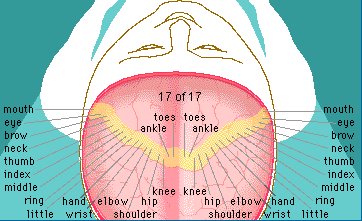03.01.1999
Stress and Your Brain
War, rape, sexual abuse, and other severe trauma--even a car accident--could make part of your brain disappearby Robert Sapolsky
Naturally, the idea that trauma could cause a brain to shrink could be completely wrong, the sort of chicken-and-egg mess that often trips up scientists just when they think they’ve found a clue. Put a bunch of soldiers through some unspeakable hell of combat and typically only a subset of them, 15 to 30 percent, get PTSD. Maybe we have the story backward. Maybe the person with a small hippocampus who goes into a trauma is the one vulnerable to PTSD. Maybe that person processes information differently, forms memories differently, and is more at risk for flashbacks. Pitman and his colleagues have reported that soldiers who wind up with PTSD were likely to have had a higher-than-average rate of what are called “soft” neurological signs—not out-and-out neurological diseases but some minor red flags such as delayed developmental landmarks or a higher than average rate of learning disorders.
Some researchers are trying to figure out whether a small hippocampus predisposes someone to PTSD. Pitman, Arieh Shalev, and their colleagues are doing a prospective study, examining MRIs of people who have just undergone a trauma and following up with later scans. The neuroscientists will examine the before-and-after images to see whether a small hippocampus really does precede and predict who will get PTSD, or if hippocampal volume decreases in the later picture.
Meanwhile, Thomas Freeman, a psychiatrist at the North Little Rock Veterans Administration Medical Center, is taking another approach to untangling the question of cause and effect. If the hippocampus shrinks after the trauma, especially if it does so as a function of the ongoing post-trauma period, the extent of atrophy should be more dramatic in survivors of older disasters than of recent ones. Freeman and his colleagues are comparing brain scans of PTSD victims from the Gulf War, Vietnam, Korea, and so on.
So we’ve got scientists disagreeing, experiments to be done, grants to be written. What does all this mean? Let’s start with what it doesn’t mean. At present, there isn’t a shred of evidence to link everyday stress—traffic jams, money worries, crummy bosses, unhappy relationships—to neurons keeling over dead. Those stressors are not good for things like blood pressure and may result in hippocampal neurons not functioning at their best, but the neurons almost certainly remain intact. The National Institute of Mental Health defines post-traumatic stress disorder as “an extremely debilitating condition that can occur after exposure to a terrifying event or ordeal, in which grave physical harm occurred or was threatened.”
At least 4 percent of adults in the United States (5.7 million people) suffer from PTSD every year. One million Vietnam veterans have developed the disorder, as have nearly one in three people who have spent time in war zones.
Triggers include military combat, violent personal assault (rape, torture, physical or sexual abuse), accidents (car wrecks, plane crashes), natural disasters (floods, hurricanes, earthquakes). Families of victims can also develop PTSD.
http://discovermagazine.com/1999/mar/stress/article_view?b_start:int=1&-C=
Friday, September 7, 2007
Subscribe to:
Post Comments (Atom)

http://www.windyweb.com/stop.htm














No comments:
Post a Comment